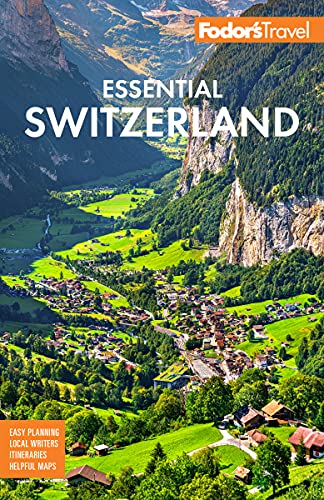Money
Switzerland remains one of the most expensive countries on the Continent for travelers, and you may find yourself shocked by the price of a light lunch or a generic hotel room. A cup of coffee or a small beer costs about 5 SF in a simple restaurant; ordinary wines, sold by the deciliter ("déci"), a small pour of roughly 3.5 ounces, start at about 8 SF. These prices almost double in resorts, city hotels, and fine restaurants. A plain, one-plate daily lunch special averages 18 SF to 25 SF. A city bus ride costs between 3 SF and 4 SF, a short cab ride 18 SF.
Prices here are given for adults. Substantially reduced fees are almost always available for children, students, and senior citizens.
ATMs and Banks
ATMs are common and are always the best way to get local currency, even if your bank charges you a fee.
Credit Cards
Credit cards are best for large purchases, but check with your bank for any foreign transaction fees. We strongly advise against using a debit card to make purchases abroad. If your card is compromised, the money in your bank account may disappear, at least temporarily, unlike with a credit card, where you can dispute a specious charge before having to pay your bill.
Before you charge something, ask the merchant whether or not he or she plans to do a dynamic currency conversion (DCC). In such a transaction the credit-card processor (shop, restaurant, or hotel, not Visa or MasterCard) converts the currency and charges you in dollars. In most cases you'll pay the merchant a 3% fee for this service in addition to any credit-card company and issuing-bank foreign-transaction surcharges.
Dynamic currency conversion (DCC) programs are becoming increasingly widespread. You should always have the option to be charged in local currency.
Reporting Lost Cards
American Express. 800/528–4800; 336/3931111; www.americanexpress.com.
Diners Club. 800/234–6377; 514/8771577; www.dinersclub.com.
MasterCard. 800/627–8372; 636/7227111; www.mastercard.com.
Visa. 800/847–2911; 303/9671096; www.visa.com.
Currency and Exchange
The unit of currency in Switzerland is the Swiss franc (SF), available in notes of 10, 20, 50, 100, 200, and 1,000 (the currency symbol for the franc is CHF). Francs are divided into centimes (in Suisse Romande) or Rappen (in German Switzerland). There are coins for 5, 10, 20, and 50 centimes. Larger coins are the 1-, 2-, and 5-franc pieces.
At this writing, 1 Swiss franc equals 0.99 U.S. dollars, 1.28 Canadian dollars, and 0.77 pounds sterling. Keep in mind that more than 300 train stations have currency exchange offices that are open daily, including lunch hours, when most banks are closed. These booths swap currency and buy and sell traveler's checks in various currencies.
Even if a currency-exchange booth has a sign promising no commission, rest assured that there's some kind of huge, hidden fee. (Oh, that's right. The sign didn't say no fee.) And as for rates, you're almost always better off getting foreign currency at an ATM or exchanging money at a bank.
Contact
XE.com. www.xe.com.




